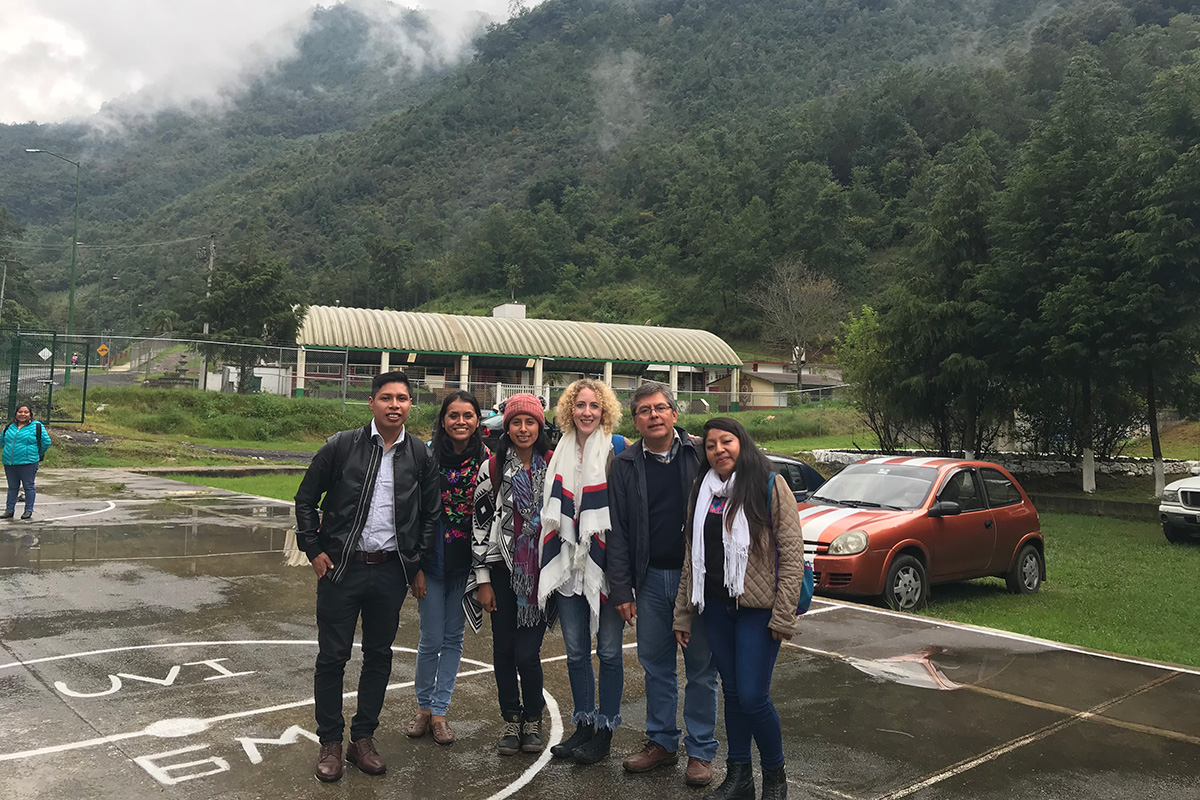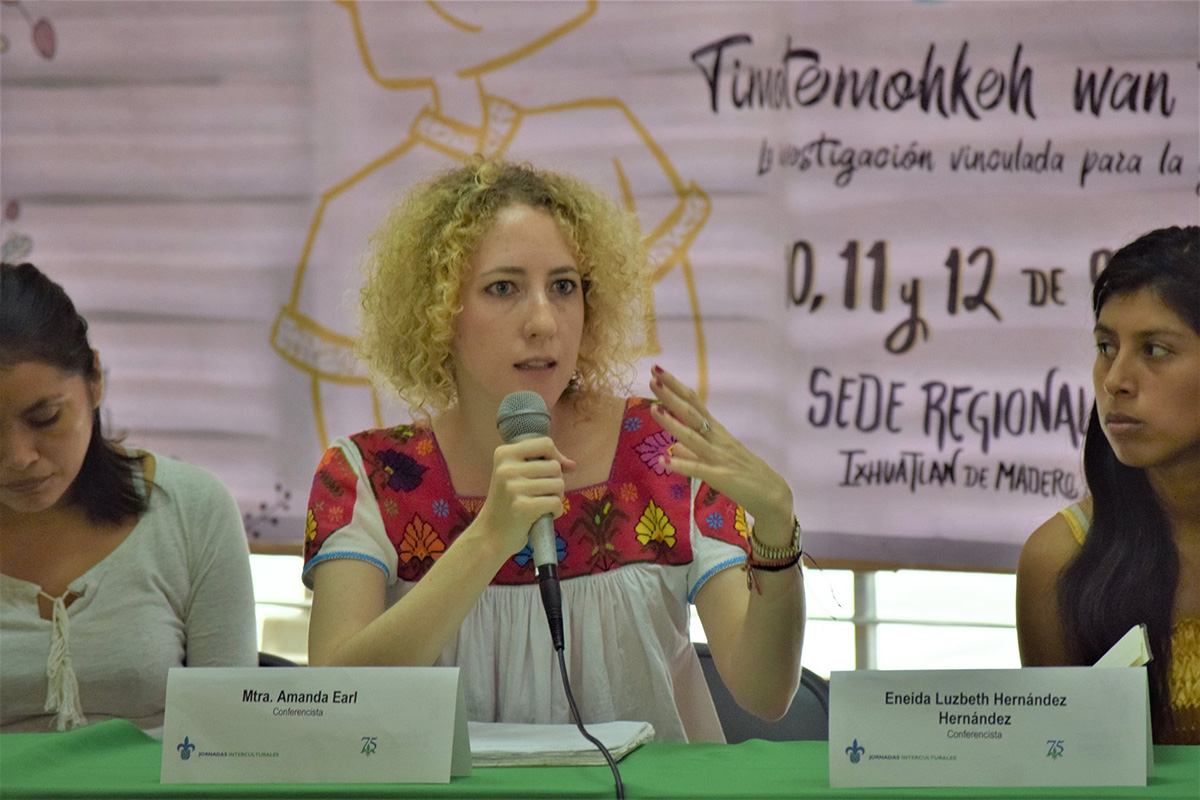When you look back at Amanda Earl’s schooling and career thus far, she seems to have been preparing for the two major endeavors that now occupy her time.
One is the study of Nahuatl — the language that was once the tongue of the Mexica (Aztec) Empire.
The other is a graduate assistantship at the Teachers College Record.
For Earl, a doctoral student in TC’s Department of International & Transcultural Studies, both pursuits are about ensuring that “marginalized voices are heard in order to improve education.”
Earl speaks English, Spanish, Latin and Ancient Greek. She earned her undergraduate degree in the latter two languages at Brown University — but after graduating fell in love with the classroom and decided to become a teacher rather than a classics scholar.

LINGUISTIC CONNECTION Earl with colleagues at the fifth Annual Meeting of Nahuatl Speakers at the Grandes Montañas Campus of the Universidad Veracruzana Intercultural. (Photo courtesy of Amanda Earl)
Then she worked for a non-profit that was helping new immigrant and English learners at a Brooklyn high school prepare for college enrollment, and she became passionate about ensuring college access.
At Teachers College, Earl met Professor of Education Regina Cortina, a specialist in Latin American educational development, and the lens shifted just a bit more.
“I became preoccupied with the theoretical question of what students stand to gain or lose by assimilating into a college-going culture,” says Earl, who studied abroad in Argentina as a high school student and has remained interested in the cultural diversity of Latin America.
Nahuatl (pronounced “NA-watt”), which Earl studied at Columbia’s Institute for Latin American Studies, is still spoken by nearly 2 million residents of Guatemala and Mexico, including in rural parts of the Mexican state of Veracruz. Supported by a Foreign Language and Area Studies graduate student fellowship and a grant from The International Research Foundation for English Language Education, Earl is focusing on the latter region, conducting research on the “roles and meaning of intercultural higher education for indigenous students and their communities.” Her dissertation will center on the curriculum and teaching strategies at a small intercultural university serving a largely agrarian student population.
Earl characterizes Nahuatl as “a living, breathing modern language” and calls her personal study of it a “very small token of recognition toward making the students I’m working with feel welcome” in institutions dominated by English and mainstream Spanish.
Earl wants to shed light on how the recognition and use of local languages might transform rural students’ formal higher education experiences. She hopes her findings will further the development of “plurilingual and pluricultural” public education spaces for students who remain in remote areas of Latin America as well as for young people who may ultimately leave those places. She believes such spaces must be created together with youth and communities, who know best what they need.
Earl calls her personal study of Nahuatl a “very small token of recognition toward making the students I’m working with feel welcome” in institutions dominated by English and mainstream Spanish. But she also characterizes Nahuatl as “a living, breathing modern language” that should be viewed as an important cognitive and knowledge resource for many young Veracruz residents, whether they end up working or going to school in Mexico or the United States.
Voices of the ‘Global South’ have been historically underrepresented in prestigious journals. What I like about Michelle's leadership [of the Teachers College Record] is her interest in reopening an international focus.
—Amanda Earl
Meanwhile, her study of the language and her work in Veracruz make Earl an ideal addition to the Record, TC’s 120-year-old education journal. There, the new Executive Editor, Professor of Education Michelle Knight-Manuel, has asked her to help make the journal more welcoming to scholars who are from — and write about — areas other than the United States and Europe.
“Voices of the ‘Global South’ have been historically underrepresented in prestigious journals,” Earl says. “What I like about Michelle's leadership is her interest in reopening an international focus.” There’s no stronger evidence of that focus than Amanda Earl herself.

